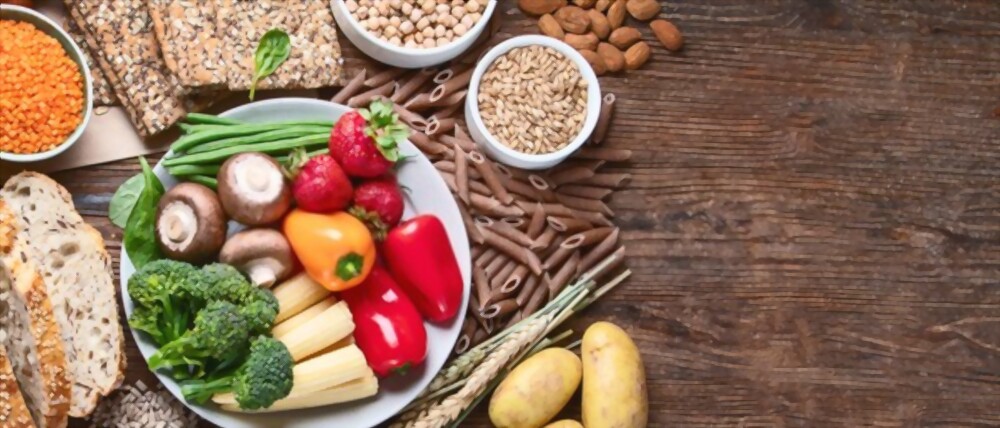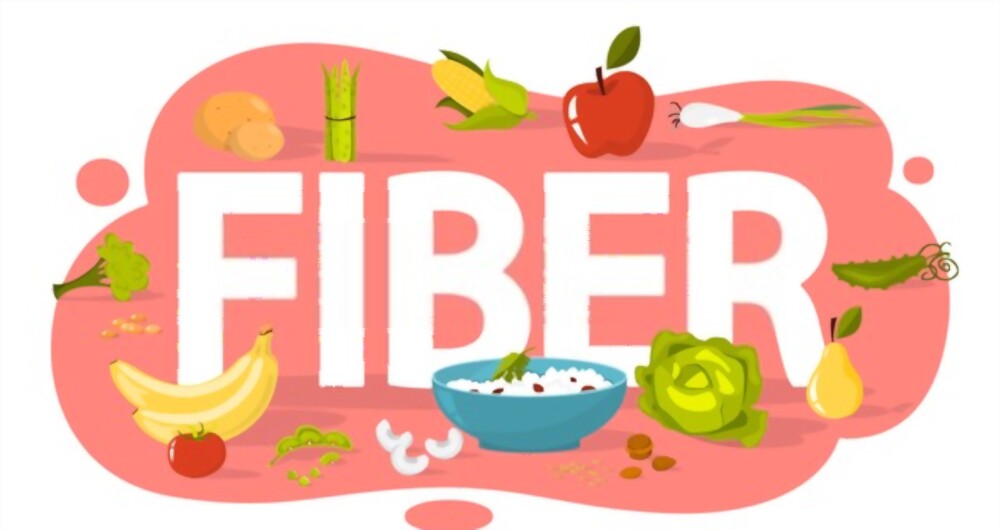
You’ve heard about the importance of dietary fiber. You’re aware of the dozens of fiber supplements designed to help you reach your recommended daily intake, but what’s the big deal? Isn’t fiber just indigestible bulk that cleans your colon and helps you stay regular?
We know dietary fiber is important, but should you worry about fiber intake even if you have regular bowel movements? What if you don’t have any problems with digestion? What are the best sources of dietary fiber?
Unfortunately, most people get fiber from multi-grain cereal and bran muffins – the most highly processed and least helpful forms of fiber available.
The truth is that dietary fiber does much more for your health than just scrub your colon. It’s also essential for hormone balance, nutrient absorption, and gut health. Fiber is food for the billions upon billions of health-promoting bacteria that live in your intestines, and without them, optimal wellness is simply not attainable.
Health Benefits of Dietary Fiber
Dietary fiber is basically sugar that the human body can’t digest. The molecules are arranged in such a way that the digestive enzymes we produce can’t break them apart. This process allows the fiber to pass through the stomach and small intestine to the colon, where our gut microbes can eat it.
This is what is known as “prebiotic” activity.
Prebiotics are part of the human diet by design. They are present in human breast milk to develop and nurture a baby’s intestinal bacteria, which optimize the immune and digestive systems.
When intestinal bacteria are well-fed, they provide wonderful health benefits in return. They build up and support the immune system for fighting infection and other foreign invaders. They create short-chain fatty acids the body will use for producing energy, they help regulate metabolism, they aid in the absorption of important minerals like calcium, magnesium, and iron.
Dietary fiber has been shown in numerous scientific studies to:
- Decrease diabetes risk (1).
- Reduce the risk of colon cancer (2).
- Reduce the risk of pancreatic cancer (3).
- Reduce chronic inflammation (4)(5).
- Reduce the risk of early mortality (death) from disease (6)(7).
- And an abundance of science shows that dietary fiber reduces the risk of developing heart disease (8)(9)(10)(11)(12).
In one study of patients with type 1 diabetes, researchers concluded that it was not saturated fat that raised the risk of heart disease but rather a lack of dietary fiber. The more fiber subjects consumed, the lower the incidence of heart disease and early death (13).
Another study revealed that as fiber consumption decreased, the risk of developing type 2 diabetes increased. As corn syrup intake increased (the hallmark of processed food), type 2 diabetes became more common (14).
This means that the type of carbohydrates we eat is more important than the amount when it comes to preventing disease.
Types of Dietary Fiber: Soluble and Insoluble
There are two types of dietary fiber: soluble and insoluble, determined by whether or not they dissolve in water.
Soluble fiber like pectin, inulin, and beta-glucan, dissolve in water and generally (but not all types) ferment in the gut, giving them a prebiotic quality. When intestinal bacteria eat soluble fiber, fatty acids and other important vitamins are formed.
Soluble fiber also slows down the movement of digested material through the digestive tract, allowing for better nutrient absorption and lower insulin response.
Soluble fiber has been shown in research studies to lower insulin resistance (15), improve asthma (16), improve inflammation (17)(18), and improve immune function (19).
Most of the positive talk in the news about dietary fiber is regarding soluble fiber.
Insoluble fiber, on the other hand (cellulose, lignin, chitin), does not dissolve in water (so it helps regulate bowel movements) and speeds up the movement of digested material through the intestines. Some types of insoluble fiber are also fermentable and create fatty acids and other useful vitamins, as well.
Insoluble fiber is mostly viewed as somewhat useless, but science tells a different story. Research shows insoluble fiber lowers LDL cholesterol (20) and oxidative stress (21)(22).
Best Fruit and Vegetable Fiber Sources
Hands down, the best source of dietary fiber is not processed cereal grains like breakfast cereal and multi-grain bread but from plants. In fact, most of the studies showing fiber’s health benefits use plant fiber.
Bran muffins and bran cereal also don’t provide much more fiber than vegetables.
Fruits and vegetables with the highest fiber content are:
- Apples
- Artichokes
- Blackberries
- Broccoli
- Corn
- Eggplant
- Dried Figs
- Swiss Chard
- Pears
- Sweet Potatoes
- Raspberries
- Cooked Spinach
- Yams
Be wary of cheap fiber added to protein shakes and other supplements. Maltodextrin, artificial cellulose (made from wood pulp), and other “proprietary” fiber blends are not natural fibers and are processed using high heat and toxic chemicals.
These fillers are just an artificial means of making you feel full and do not act like plant fiber when ingested.
Insoluble Fiber – Diverticulitis, Crohn’s Disease, and IBS
People suffering from gastrointestinal disorders and other digestive maladies are often advised to avoid insoluble fiber because it’s “rough on the digestive tract” and can cause degeneration of the disease.
This advice, however, has never been scientifically validated.
In fact, research shows just the opposite.
♦ In one study, fiber intake from fruits and vegetables decreased the risk of complications in patients diagnosed with the diverticular disease while cereal grains did not. What’s more interesting is that high insoluble fiber consumption (especially cellulose – vegetable fiber), and not soluble fiber, was associated with the lowest risk of complications (23).
♦ Researchers in another study commented that there was “no evidence to support that diverticulitis patients should eliminate soluble fiber or that it worsens the condition. In fact, insoluble fiber is important for prevention and to prevent a recurrence.” (24)
♦ In another large study, patients with Irritable Bowel Syndrome were given either a soluble fiber supplement, an insoluble fiber supplement, or a placebo. While soluble fiber significantly improved symptoms of IBS, insoluble fiber didn’t irritate their condition (25).
♦ A study using chitosan and vitamin C supplementation in Crohn’s disease patients showed no detriment to disease activity (26).
♦ High vegetable (insoluble fiber) intake also reduces the risk of developing ulcerative colitis (27), and it accelerates colon repair in colitis (28).
At times, consuming insoluble fiber like leafy greens can seemingly worsen the symptoms of IBS, diverticulitis, etc.. Still, this effect is probably also a symptom of the disease rather than a trigger.
Dietary Fiber and Weight Loss
Can dietary fiber help you lose weight?
Yes, it can (29), although most fiber supplements designed for weight loss have proven to be ineffective.
Healthy gut flora helps manage weight (30) and digestion, so not just any fiber will do.
The types of fiber shown to aid in weight loss are of the plant variety (31) because plant fiber feeds gut bacteria. It’s NOT because fiber keeps you regular. Flax, asparagus, and brussels sprouts were specifically named in the study.

I have been a nutritionist for the past ten years, and have faced many people who are almost desperate to get the ideal body shape. Don't let others judge you based on your appearance. Every effort you make will take you to a better stage of life. Research, do, analyze, and repeat the success that occurs.

